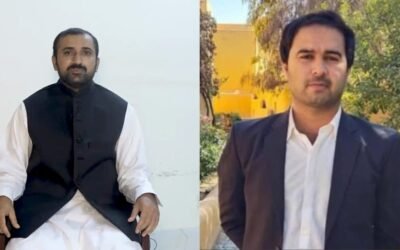Anti-institutional rhetoric is goal-deliberate or unclear action to undermine the confidence of segments of the population in the key state institutions, such as the armed forces, the judiciary, and the parliament, in Pakistan.
These campaigns normally involve the spread of false accusations, conspiracy theories, and rumors on social media and partisan news outlets. Unlike constructive criticism, which makes an institution work better, this type of rhetoric sets out to undermine the credibility and validity of any particular institution to the people.
The introduction of an increased number of digital platforms such as Twitter, YouTube, and WhatsApp has increased the speed and spread of these campaigns. During political strife, stories abound that blame policymakers or insist that institutions are biased or downright interfering, all without any hard evidence.
Online propaganda in Pakistan has risen over the past years, particularly during elections and court verdicts, where misinformation has played a leading role. The interpretation of this phenomenon is necessary since it has direct consequences on the stability of nations and undermines the faith required to forge a democracy to work.
Origins and Sources of Anti-Institutional Narrative
The origin of anti-institutional narratives in Pakistan is both internal and external. One of the reasons is the political rivalries inside. When their way gets obstructed by a ruling that they do not like, the competing political parties tend to justify this move by accusing institutions, such as the judiciary or military, of being biased and participating in political engineering. Such a blame game undermines the confidence of people and dents the position of these institutions.
Pakistan is experiencing hybrid warfare, in which foreign powers attempt to cause weakness to the country not through armed forces, but through information. These actors post fake or unrelated information on social sites such as Twitter, YouTube, and WhatsApp to cause mistrust between citizens and authorities.
Such campaigns are usually headed by automated bots, fake news pages, and troll accounts sharing viral content that seems to be true but is, in reality, meant to confuse and divide. PTA has stated that thousands of spurious accounts are detected regularly, which seek to create instability in the national institution. A combination of these two internal and external sources leads to a vicious cycle of distrust and disunion.

Source: Pakistan Today
Narrative Warfare and Institutional Destabilization in Pakistan
The Pakistan military has also been the victim of narrative warfare, with allegations of political interference. Social media campaigns during political crises depict the military as, kingmaker, kingmaking centre, or a hand behind the power that governs the civilian government. There is also a narration of the military as an economic elite that engages in businesses, which goes along with the phrase that it is a state within a state. Such campaigns harm the image of the military in the eyes of the people and also demoralize the citizens in terms of national security and solidarity, especially where there are foreign threats.
Pakistan’s Courts are often criticized for being partial or politically charged, particularly when it comes to trying politicians of high status. The news channels and social media tend to create special campaigns suggesting that some judgments are predetermined or directed by another power centre. This continual discourse undermining the independence of the judiciary wears out faith in law. This leads to the situation where several people can start suspecting that justice is partial and is a subject of pressure more than a subject of the law.
The parliament is frequently portrayed in the context of weakness and ineffectiveness, namely in terms of high levels of absenteeism, poor quality of debating, and low legislative performance. Its critics describe it as a rubber-stamp body that does not act on the voice of the people or resolve their problems. Such negative attitudes result in diminishing interest of people in such democratic procedures as voting or engaging in political debate. This ultimately dilutes the credibility of democratic rule and provides room for the forces in power to be influenced.
Implications for National Stability
The diffusion of anti-institutional discourse in Pakistan has had profound impacts on the general trust in governance. Presenting information that institutions such as the law courts or the military system are corrupt or one-sided, the people lose trust in the fact that the state can provide them with any justice or protection. This loss of that trust leads to the dangerous disconnection between the people and the state. In Pakistan, there is still a high level of negative perception of corruption in state institutions, and it is one of the reasons that leads to increasing frustration and distrust.
This pseudo-factual rhetoric also ruins national unity and undermines democracy. As people become increasingly divided, they become more suspicious of one another and their institutions. This makes it easier for society to be controlled, both internally and by foreign powers, through the strategy of hybrid warfare.
Foreign-caused coordinated disinformation campaigns usually reflect the areas of internal dissension to cause upheaval. At the same time, the polarization of political discourse through social media makes it more difficult to find a common solution or find an agreement. Such radicalization of talks is leading people to exceed their capacities, which undermines the middle ground that consists of a proper democratic system.
Strategic Way Forward
There are no divided opinions on this matter, national stability and cohesion of Pakistan cannot be undermined; the faith in the state institutions needs to prevail. To begin with, there is a need to advance media literacy where people can identify fake news, prevent the proliferation of rumors, and become critical of the information they find, especially in the form of WhatsApp and Twitter. People need to be taught how to ensure the truth and maintain digital hygiene through schools, universities, and even campaigns.
The second thing the government should do is to reinforce legislation on misinformation and internet harassment so that deliberate spreaders of harmful content can be punished promptly. Independent fact-checking organizations and Internet watchdogs must also be enabled to track fake news and disclose fake narratives as they happen. Institutions will have to be more open and transparent. Public interaction with the press, trusted social media, and availability of information will assist in the elimination of confusion and the prevention of the spread of false narratives. All these can make a nation resilient to disinformation and secure the authenticity of the democratic process in Pakistan.




























